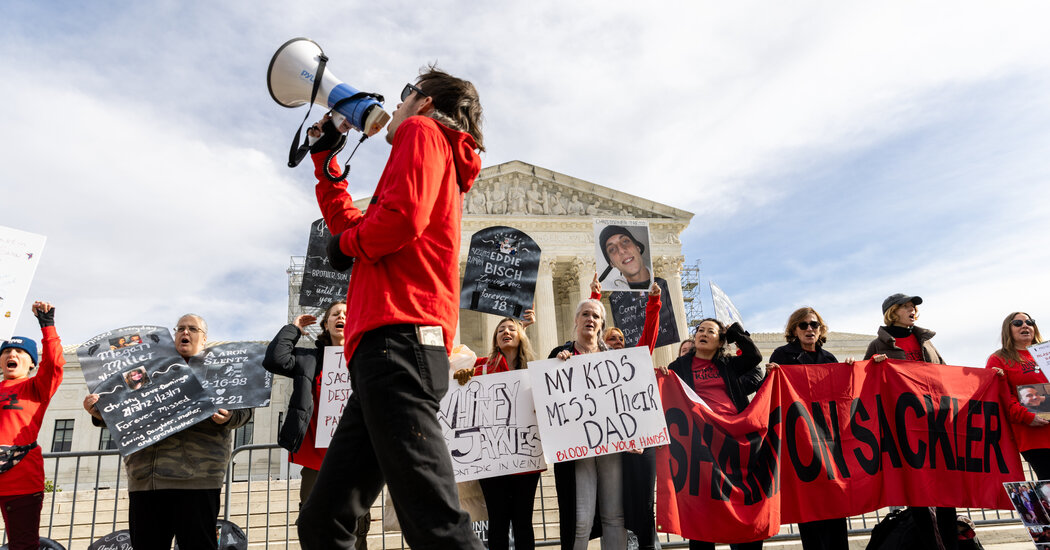
The Supreme Court said on Thursday that members of the Sackler family cannot be shielded from liability for civil claims related to the opioid epidemic, jeopardizing a bankruptcy plan that would have offered such protection in exchange for channeling billions of dollars toward addressing the crisis.
In a 5-to-4 decision, the justices found that the deal, carefully negotiated over years with states, tribes, local governments and individuals, had broken a basic tenet of bankruptcy law by shielding members of the Sackler family from lawsuits without the consent of those who might sue.
The plan for Purdue Pharma, the maker of the prescription painkiller OxyContin, the drug widely considered to have ignited the crisis, was unusual because it offered broad protections that the Sackler family, who controlled the company, had demanded for years even as the Sacklers avoided declaring bankruptcy themselves.
“The Sacklers have not filed for bankruptcy and have not placed virtually all their assets on the table for distribution to creditors, yet they seek what essentially amounts to a discharge,” Justice Neil M. Gorsuch wrote, joined by Justices Clarence Thomas, Samuel A. Alito Jr., Amy Coney Barrett and Ketanji Brown Jackson.
While he acknowledged that the decision left the plan in limbo, Justice Gorsuch wrote that the threat of future lawsuits from opioid victims, states, government entities and others might compel the Sacklers “to negotiate consensual releases on terms more favorable to opioid victims.”
“If past is prologue,” Justice Gorsuch wrote, citing the U.S. Trustee Office, which challenged the deal, “there may be a better deal on the horizon.”
